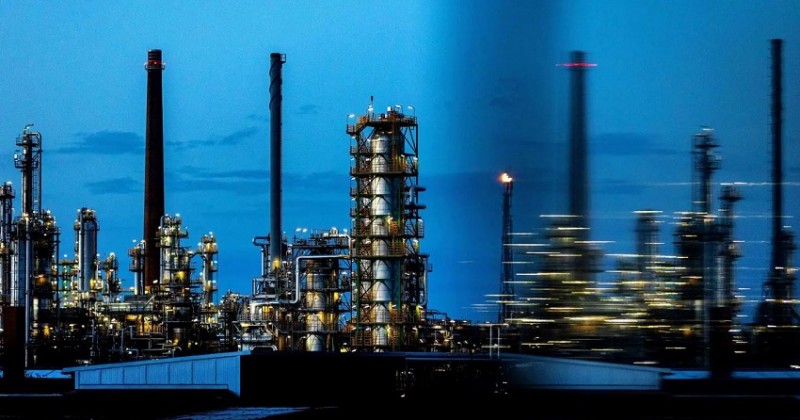
Disruption in Russian Oil Trade Squeezes Profits for Indian Refiners: Indian refiners, operated by the government, are facing new challenges as the once-affordable Russian oil becomes pricier and harder to obtain. This shift is impacting the profits of companies that had been benefiting from Russia's involvement in Ukraine.
Recent attacks in the Red Sea have caused freight rates to rise, and stricter US sanctions have resulted in some Russian oil shipments bound for India being stranded, leading to increased costs. Traders and analysts suggest that this situation may compel some refineries to purchase more expensive oil from suppliers in the Middle East, further reducing profit margins.
India relies on imports for 88% of its crude oil needs. After the conflict in Ukraine, India capitalized on the availability of cheaper Russian oil when other countries avoided it. However, this trade, which initially boosted the earnings of state-owned refiners, is now facing challenges.
Gross refining margins for processors like Indian Oil Corp. declined in the previous quarter due to higher freight rates, according to Hardik Shah, director at the credit ratings firm CareEdge Group. While margins for refiners have decreased this fiscal year, they remain higher than pre-war levels.
Unlike private processors such as Reliance Industries Ltd., which focus on exports and have more flexibility in purchasing and paying for Russian oil, state-owned processors mainly sell fuel domestically and do not benefit from higher international prices.
Indian Oil, Bharat Petroleum Corp., and Hindustan Petroleum Corp. did not respond immediately to requests for comment on margins.
CareEdge anticipates that overall margins will remain around $10 per barrel, provided that crude oil prices remain below $90, a level that Brent crude, the global benchmark, has not surpassed since October. On Thursday, futures traded near $83.
The attacks on shipping in the Red Sea by Houthi rebels have also affected global fuel trade. Fuel shipments from India to Europe averaged only 18,000 barrels per day in the first two weeks of February, a significant drop from January's average, according to Vortexa Ltd.
Although Reliance and Nayara Energy Ltd. still have export options across Asia and Africa, the disruptions are expected to have some impact on them. Cheaper Russian oil has allowed Indian refiners to compete more effectively than their counterparts in South Korea, Singapore, and elsewhere.
Mukesh Sahdev, head of oil trading and downstream research at Rystad Energy, warns that if India loses its advantage with Russian crude, its marginal refining edge will vanish.
Ukrainian Missile Strike Claims Lives of 60 Russian Soldiers
Several Indians Forced into Combat on Russia-Ukraine Border, Here's why
EAM Jaishankar Affirms Stable India-Russia Ties Amid Global Geopolitical Shifts